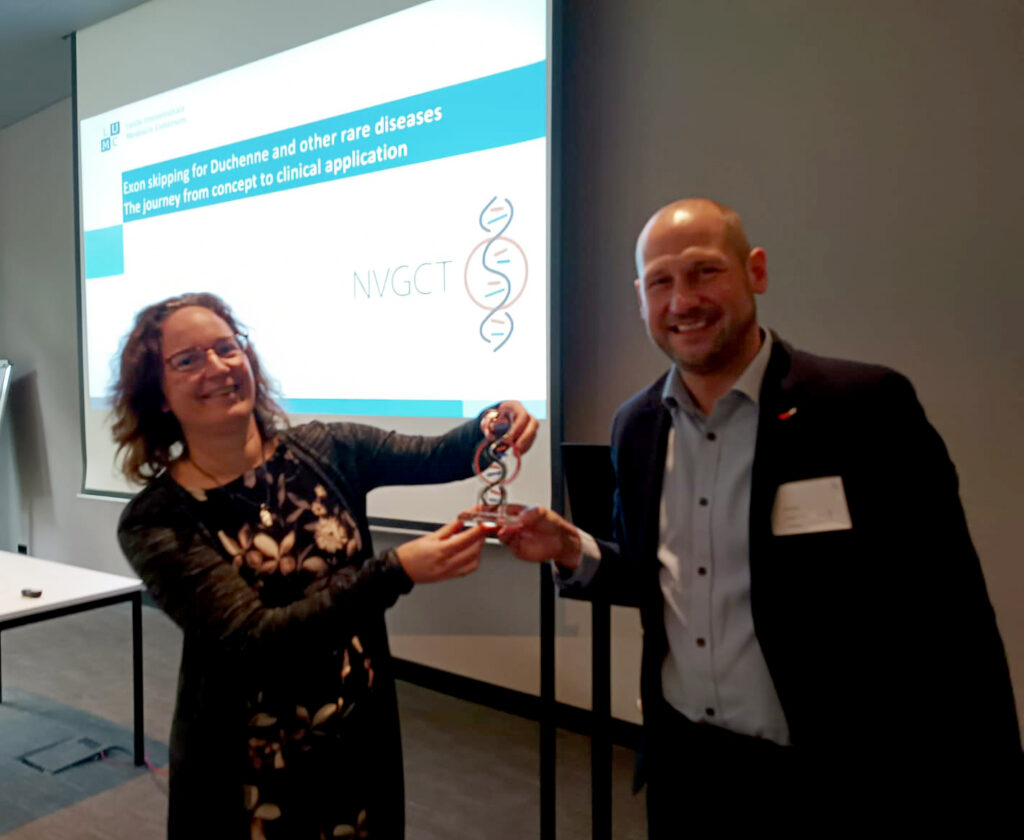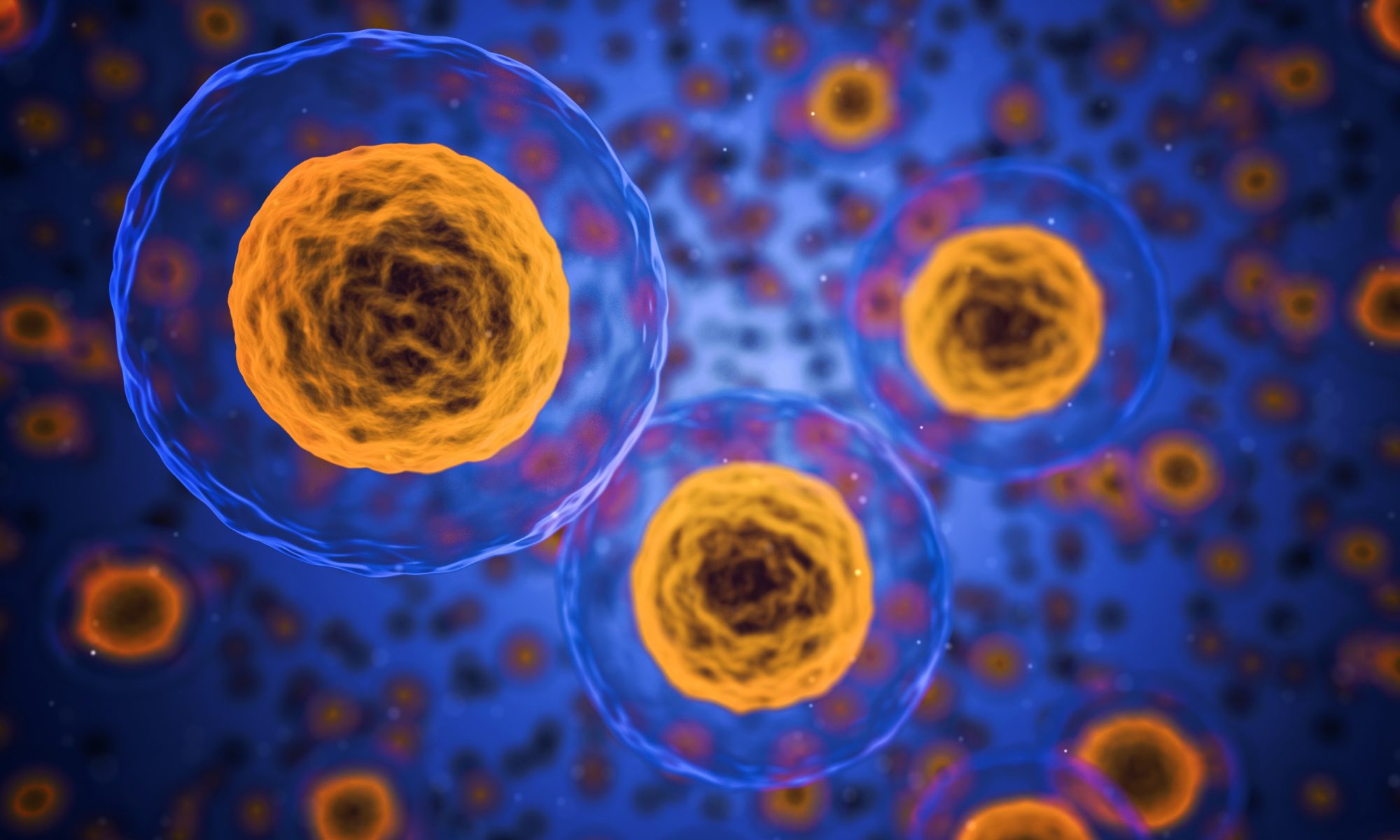To celebrate the Society’s 20th anniversary, the Netherlands Society of Gene and Cell Therapy established a new award in 2019 that seeks to honor an individual who has achieved a specific high impact contribution or a lifetime of significant contributions to the field of gene and cell therapy. The NVGCT Outstanding Achievement Award is presented at the NVGCT annual symposium. The recipient is selected from nominations presented to the board by a yearly changing nomination committee.
In 2021, the recipient of the NVGCT Outstanding Achievement Award was Prof. Dr. Annemieke Aartsma-Rus.
Prof. Dr. Annemieke Aartsma-Rus is a professor of Translational Genetics at the Department of Human Genetics of the Leiden University Medical Center. Dr Aartsma-Rus obtained her PhD in 2005 with the thesis ‘Developing antisense-mediated exon skipping therapy for Duchenne muscular dystrophy; making sense out of nonsense’. And since then, she continued actively working on exon-skipping therapy development at the Leiden University Medical center, coordinating preclinical studies for Duchenne muscular dystrophy and collaborating with Prosensa/GSK/Biomarin for the clinical development of this approach. She also established collaborations with researchers around the world to initiate exon skipping studies for other diseases and she has generated guidelines for designing of exon skipping antisense oligonucleotides, that many researcher use nowadays. In addition, she has played a coordinating role in educating stakeholders in the Duchenne field (clinicians, patients and parents, and representatives from regulatory agencies and industries) and patient education for rare diseases (collaboration with EURORDIS). Prof. Aartsma-Rus has received several awards including the Duchenne Award and the EURORDIS Black Pearl Science Award. Currently, Prof. Dr. Aartsma-Rus’ research focuses on improving exon skipping for Duchenne muscular dystrophy and other diseases, optimizing model systems for muscular dystrophies, elucidating transcript processing of the dystrophin transcript, identifying biomarkers for muscular dystrophies and studying the effect of dystrophin in the brain.

